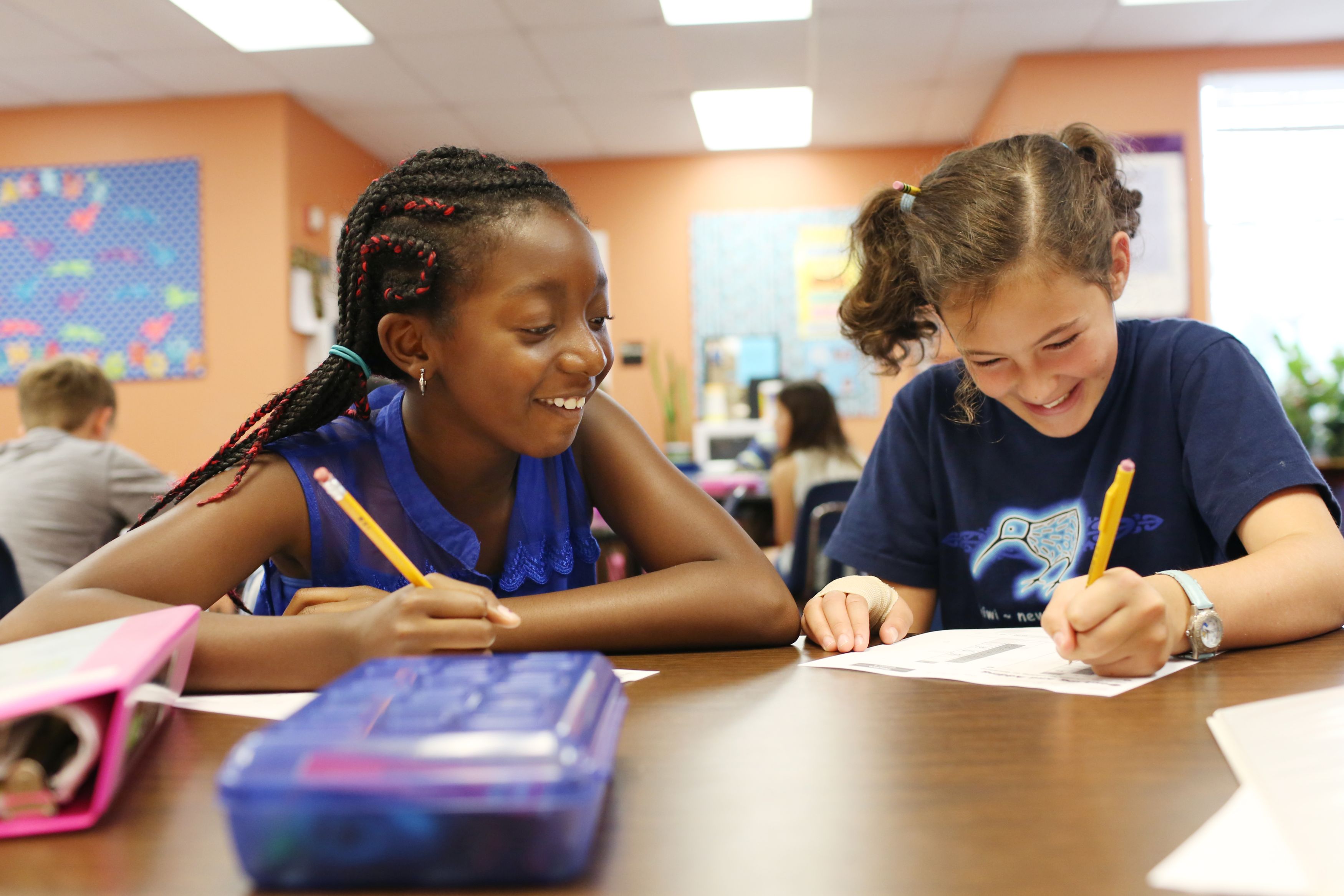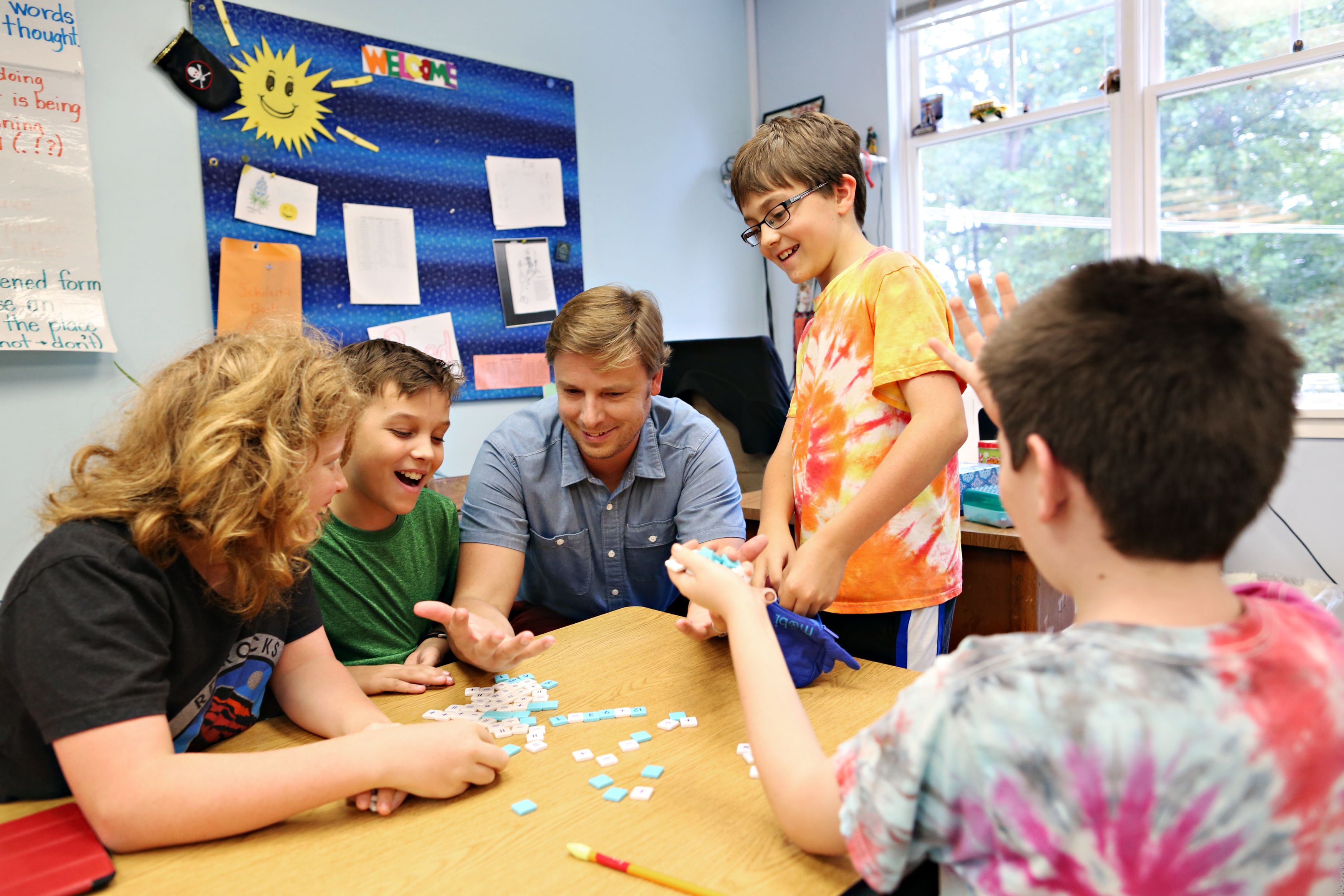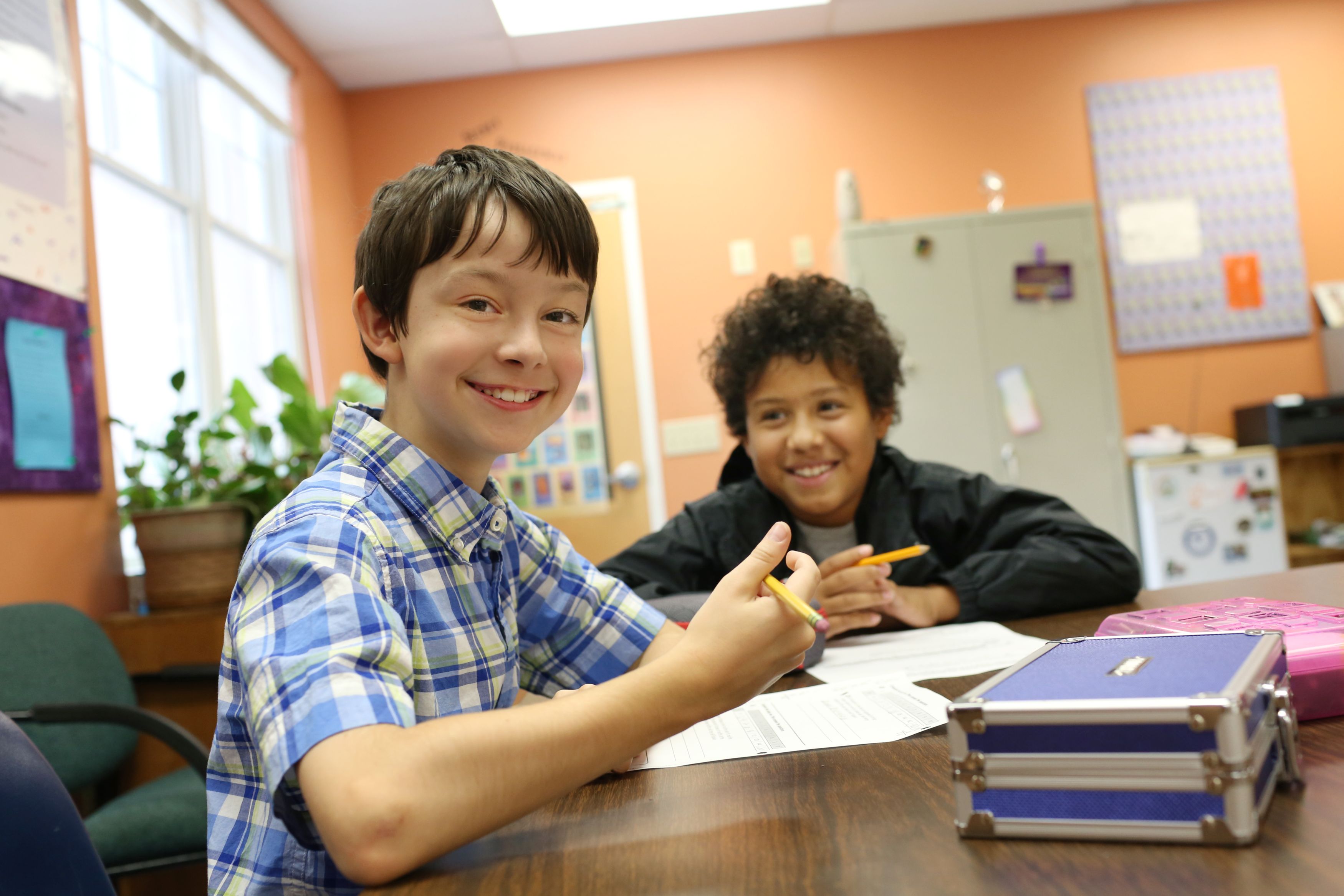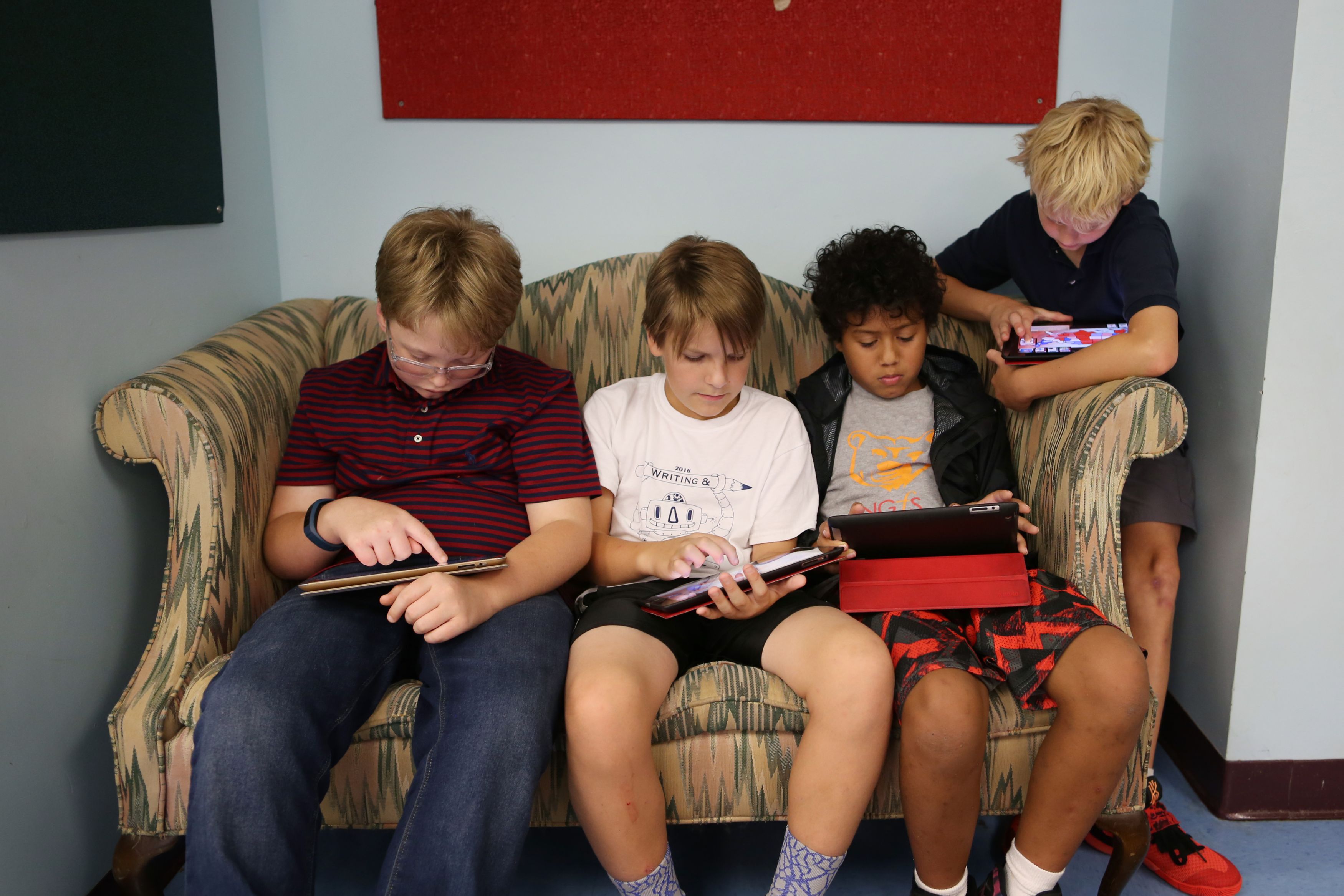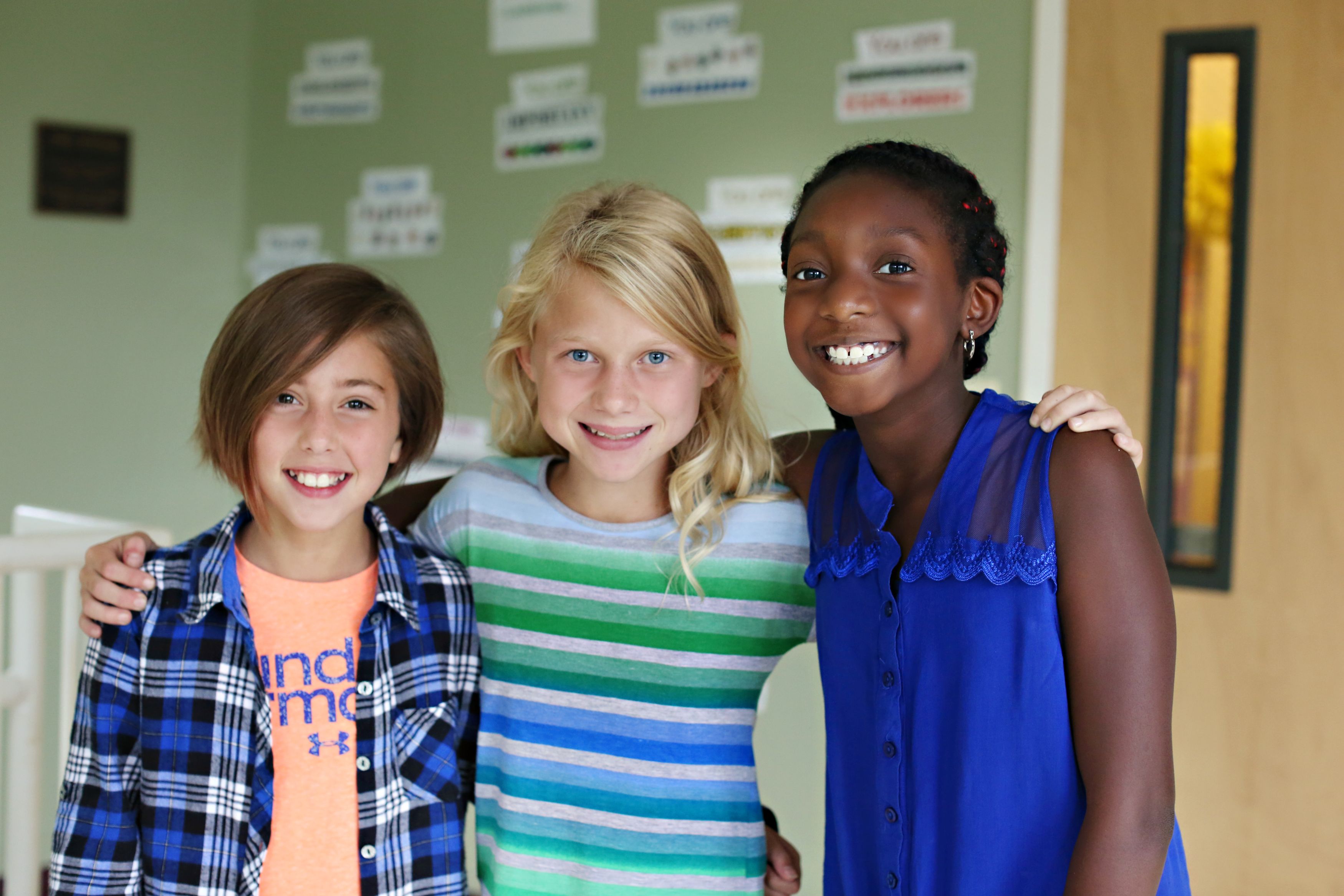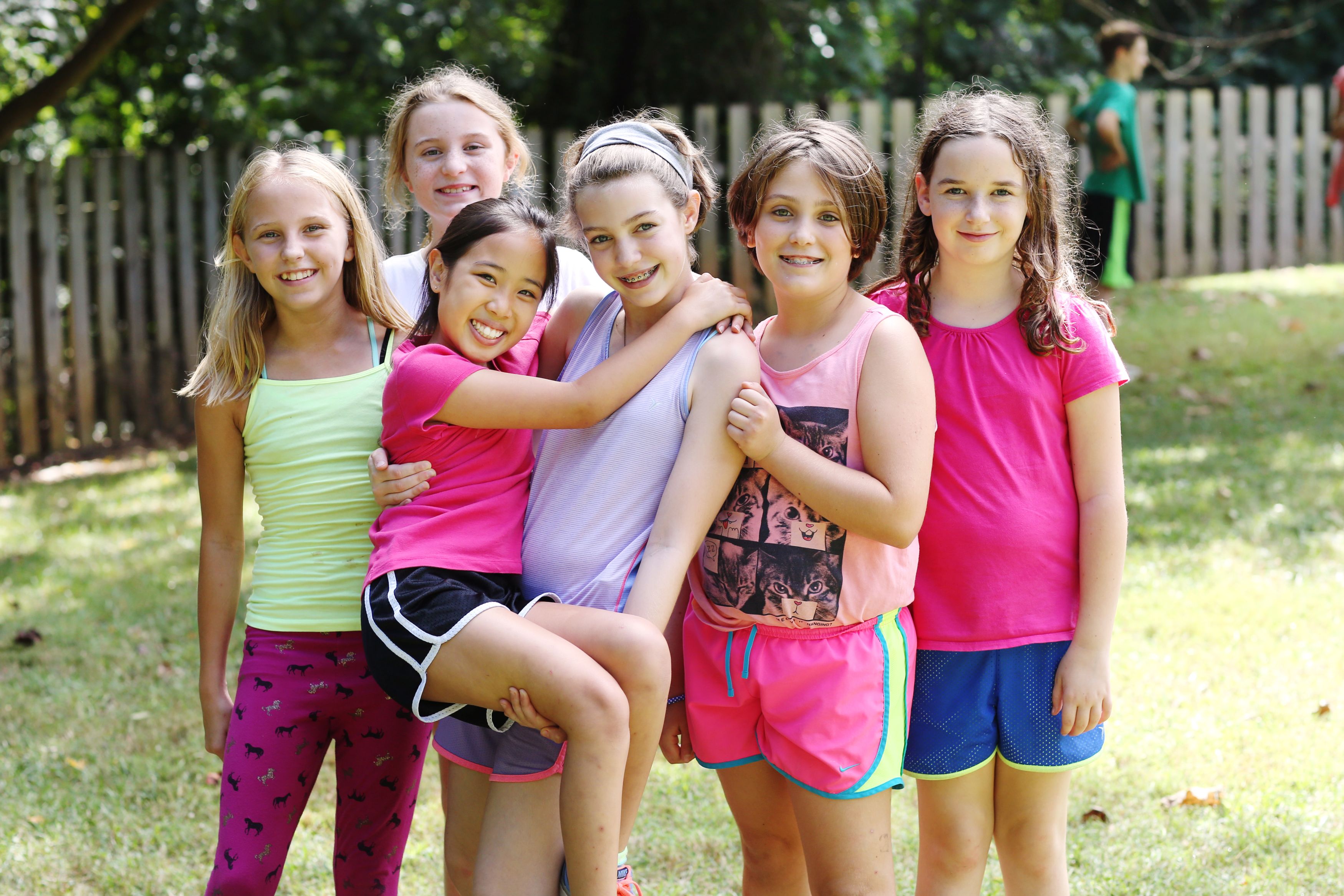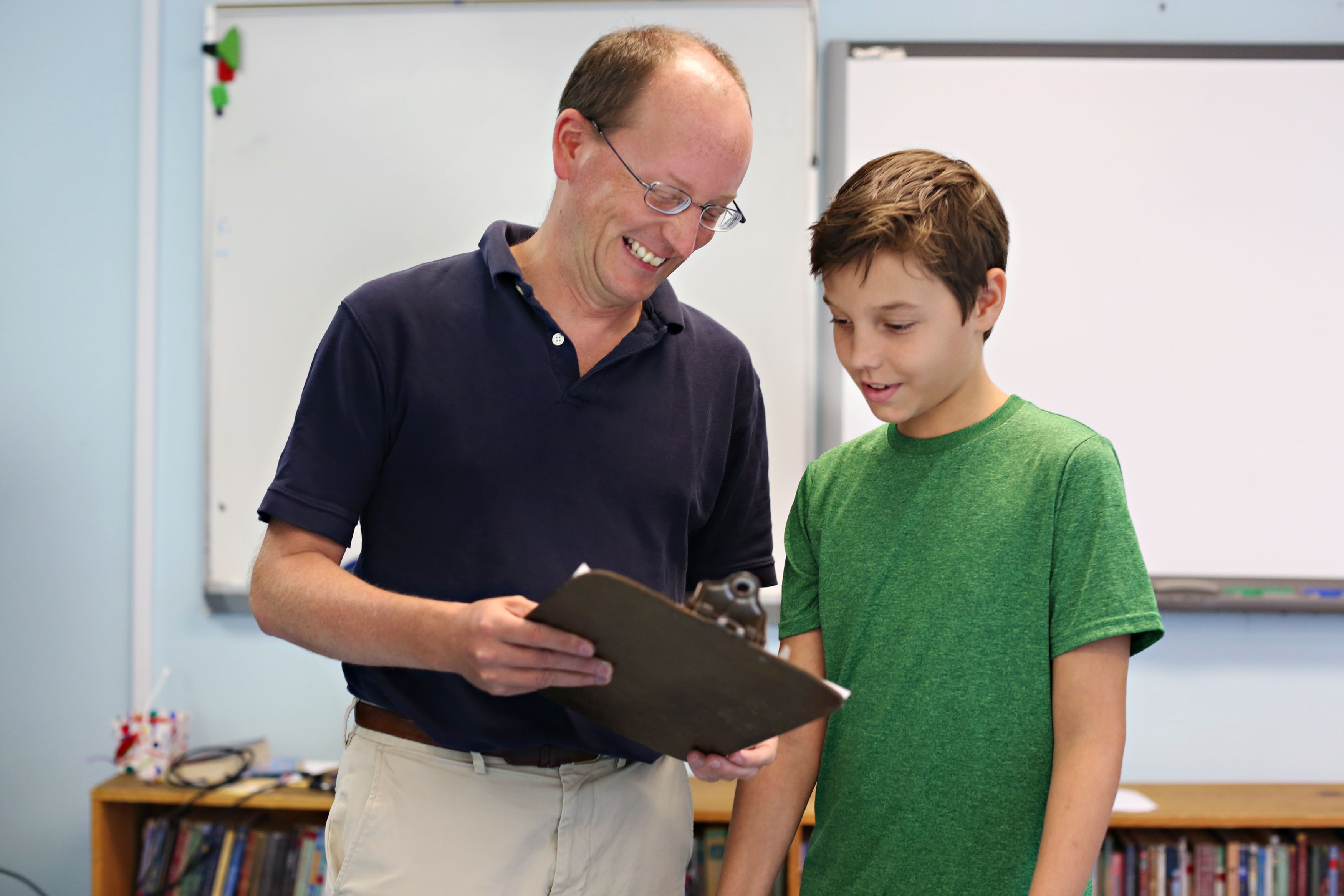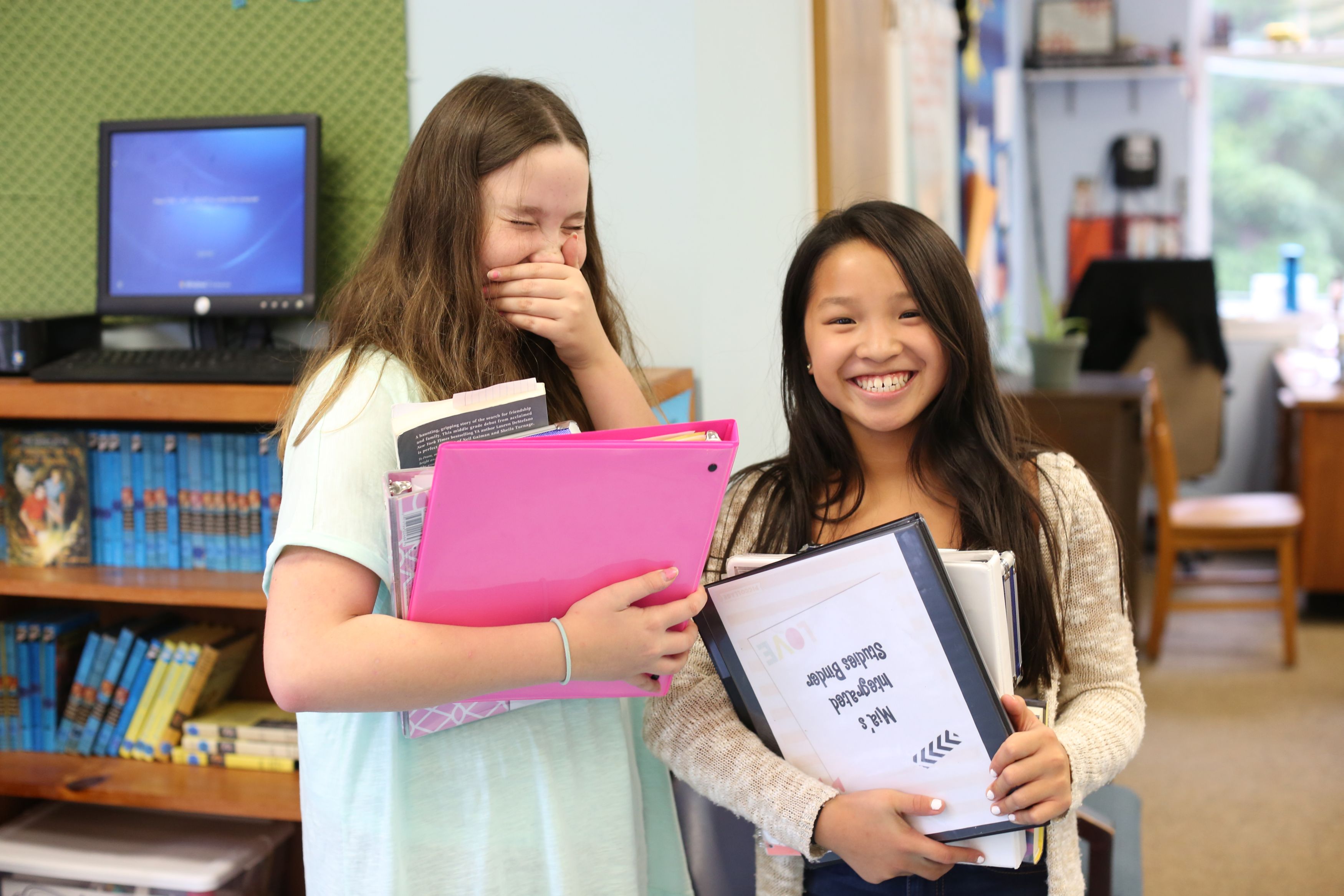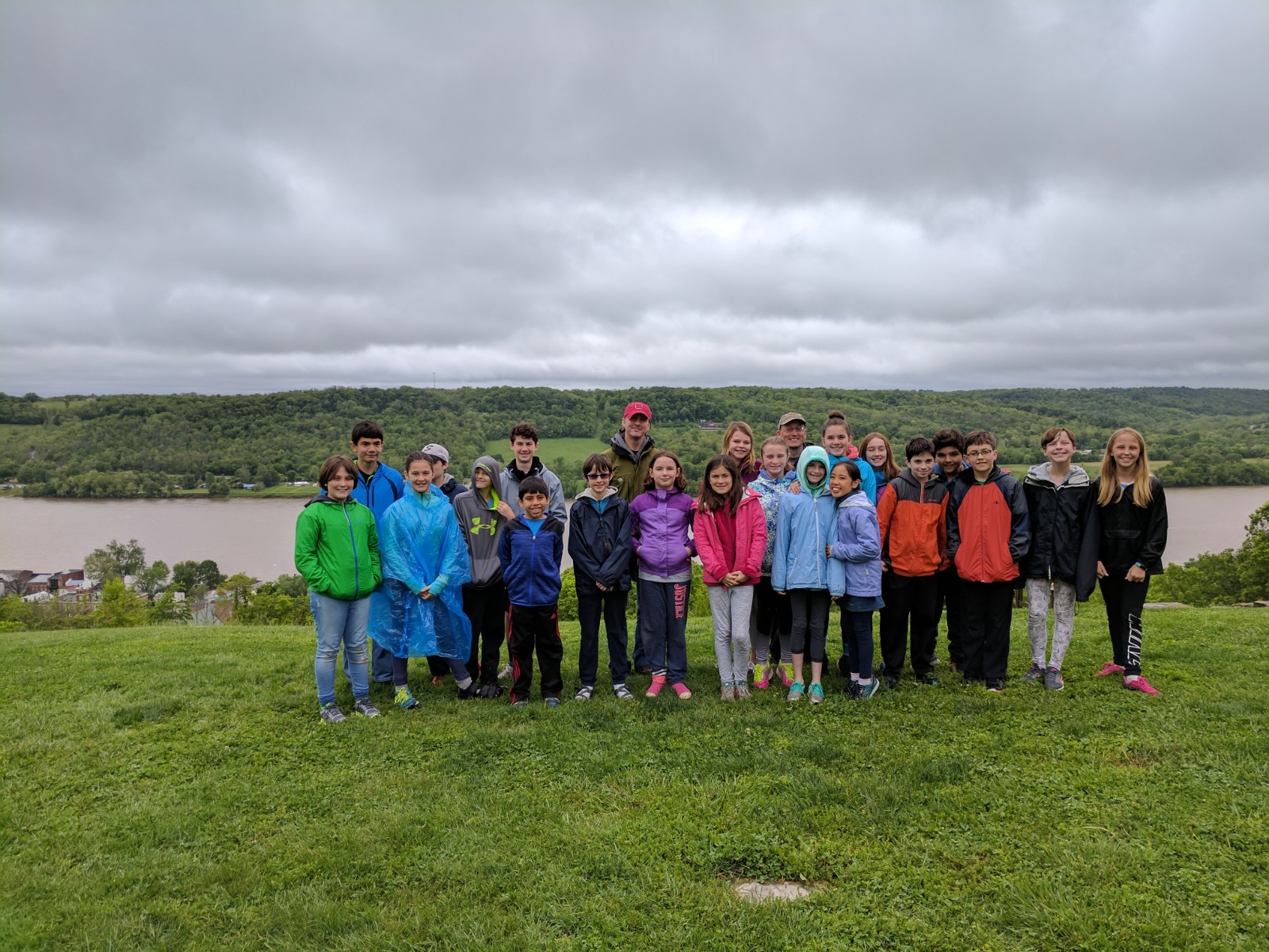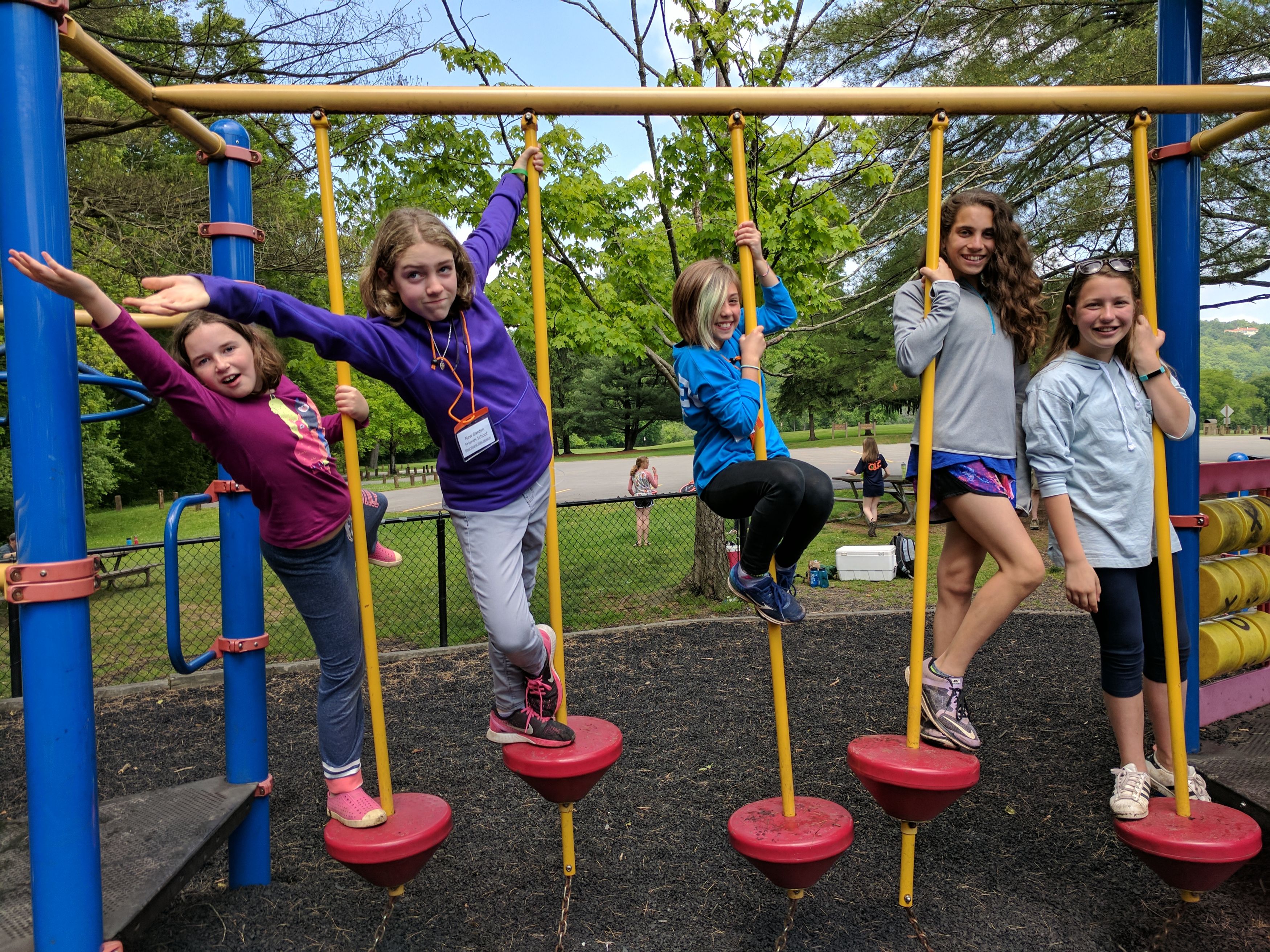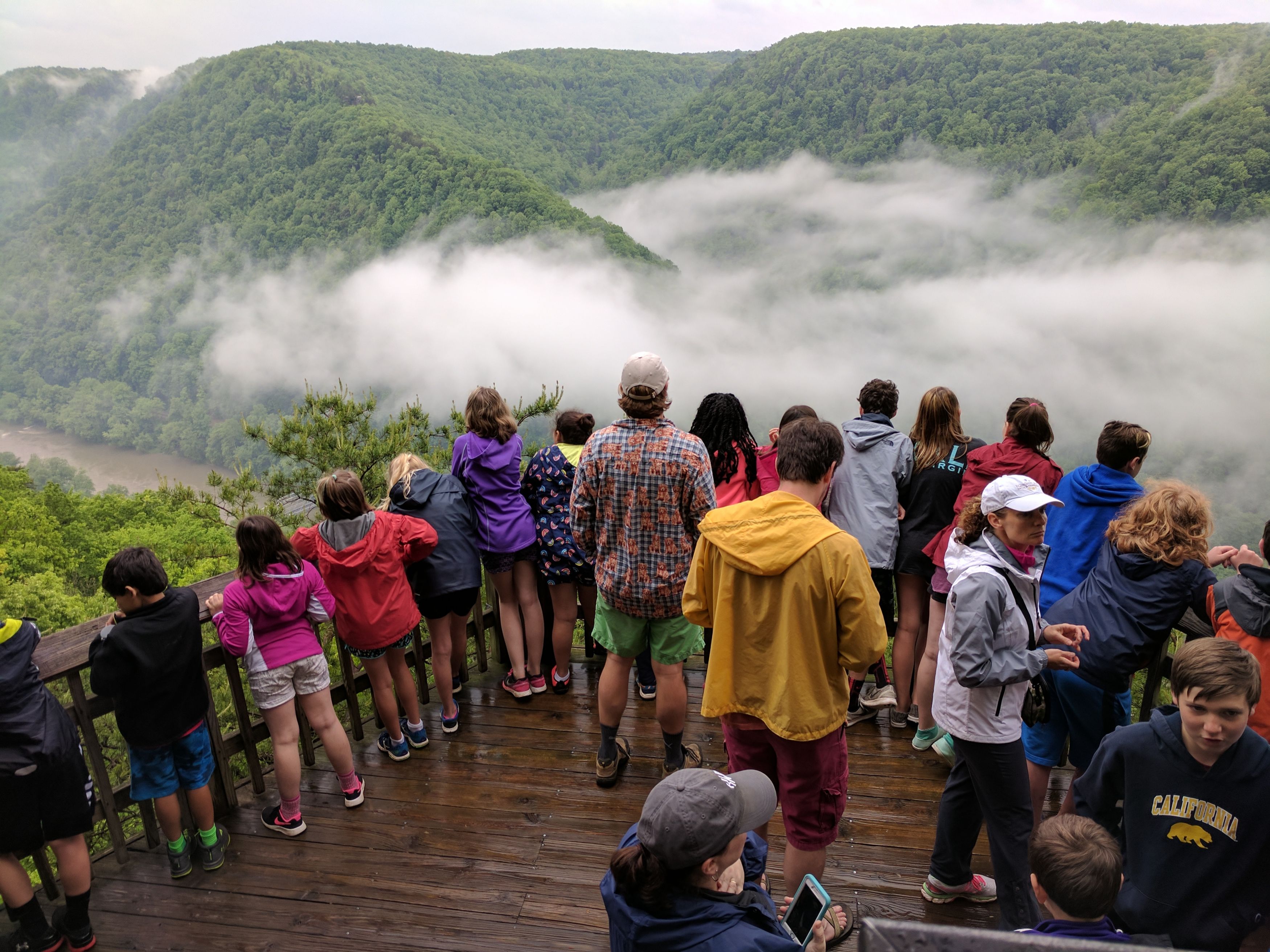Grades 5 and 6 - Galaxy
Our multi-grade classrooms create a cycle of leadership. When students move to a new classroom, they make new friends and renew friendships with former classmates. Students remain in the same classroom for two years.
PHOTO GALLERY: See what life is like in Galaxy!
Students in 5th and 6th grade are active participants in their own learning. Group work, book circles, and lots of outdoor lessons give our students the opportunity to learn both collaboratively and independently. They develop the social skills to engage with each other respectfully, and with guidance they come to learn that with a little listening, moments of conflict can be worked out with friends.
COMMUNITY
The Strength of Community
At this age, students are beginning to appreciate the “big picture” and may be struggling to work out how they fit into it. They are developing (and expressing!) views about their world and while these opinions may be surprisingly sophisticated, students sometimes need to be reminded that others may have different outlooks. Friendships and interactions with peers come to the forefront, and it is normal for social interaction to be fraught with difficulty and misunderstanding.
Our fifth and sixth grade teachers have over 40 years of combined experience teaching this age group. They are skilled listeners who know that at the heart of many situations, there is a student who just wants to be accepted for who they are and what they contribute to the class. At this level, students go outside twice a day, and Friday afternoons are reserved so that teachers can evaluate what is needed for the community. It may be a student-called classroom meeting, or a game of kickball; whatever the method, our teachers are perceptive and adept at seeing and making time for whatever is needed. Their expertise at providing a safe and supportive environment, in which students have options to solve their own problems, is lauded as one of the distinctive features of our school.
ACADEMICS
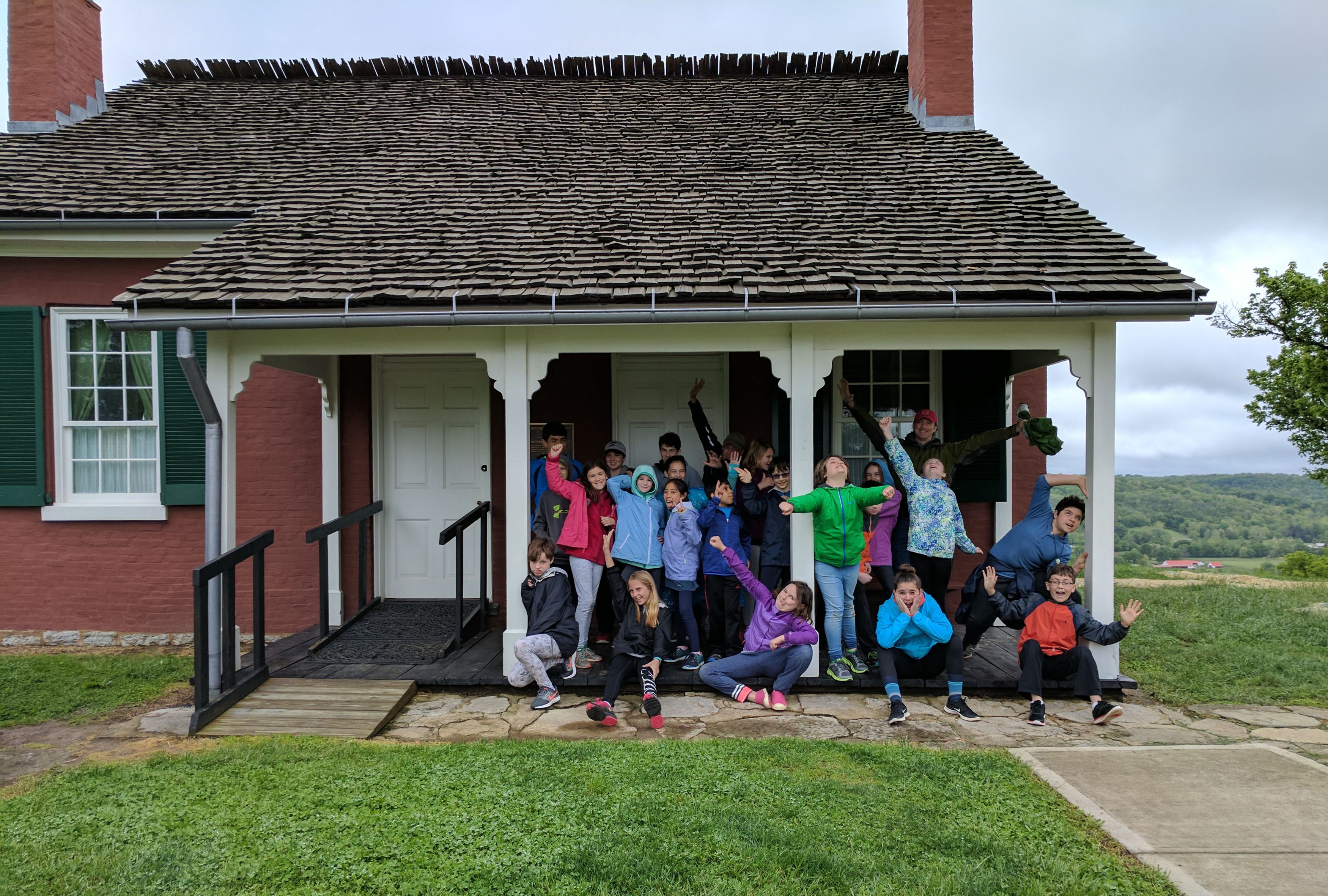
Critical Thinking and Learning Beyond the Classroom
Using what you know to create something new is a hallmark of learning in fifth and sixth grades. At these grade levels, students are beginning to want control of their school life.
Our teachers encourage students’ growing independence by intentionally teaching the planning and organizational skills needed for students to successfully manage their time and assignments. Our teachers also maintain close communication with families. At NGFS, this stage in development brings new freedoms and new responsibilities. Students are asked to think seriously about how they work, what they are doing well, and where they might need to stretch a bit further. Working one-on-one with teachers, students set their own goals and develop specific steps to achieve these goals. Choices about projects gives the freedom to pursue topics of interest; students take into account what they want to achieve and what their schedule permits. At this level, they don’t always make the right choices, but, as one of their teachers says, “Here, we teach them that it’s okay to make a mistake. It’s not a tragedy, but an opportunity to learn. It’s one of the most important things we teach; talk to any scientist, the big advances in science? They come from learning what works and what doesn’t.”
A highlight of fifth and sixth grade at NGFS are the fall and spring trips that take our learning way outside the classroom! While studying Ecosystems, students conduct valuable in-class research and experiments; but how do we build real respect for these biologically diverse communities? Through a trip to the Okefenokee Swamp, and canoeing through the wetlands! Our goal is to bring students out into the world not only to enhance their studies, but because it is critical for them to become aware of their obligations as responsible local and global citizens.
Ask any NGFS student about trips in these grades and watch their faces light up. They may be telling you what they learned from their excursions, but you’ll be hearing what they learned about themselves.
MORE THAN CORE
Beyond Core Academics
Twice a week, fifth and sixth grade students have opportunities for enrichment in the areas of art, music, PE, and Spanish. Students may continue with Suzuki violin or choose a traditional Music class.
Service Learning: Students enjoy working in small groups on projects that help people and animals in our community. Every Friday morning, students work in their service learning groups, such as the Water Bears who partner with NC Stream Watch, and the Art Quest group who travels to the Greensboro Cultural Arts Center to volunteer there.
When many schools are focusing only on test scores and cutting back on programs like drama and music, it is wonderful that NGFS continues to invest in the arts. Our amazing drama program welcomes all children who want to participate and is an experience that benefits our children far beyond the stage. The children learn about hard work and commitment and how it all pays off. The children find their 'voice' while participating in drama, something that will help them throughout their lives.—Parent of a 5th grade student
BUILDING INDEPENDENCE
Building Self-Reliance: Fall Trips and Spring Capstone Trips
Field trips are an integral component of the Galaxy class curriculum. Students are able to experience concepts and ideas first hand, and explore natural environments different from their own.
- Participate in experiential learning at locations that extend and reflect what is learned in the classroom. Canoeing in the Okefenokee Swamp, visiting the last stop on the Underground Railroad and the US Capitol, take learning to a new level.
- Take part in a trip prep unit. This helps prepare students: simulations of specific situations are practiced, such as “how to act in the gift shop with a group,” what to do when your tent mate is homesick, etc.
- Join in pre-trip planning and mapping of routes; learn why specific places have been chosen as destinations.
- Take care of yourself and of others: develop a sense of independence; go out of your comfort zone in a safe environment; build flexibility, adaptability, and resiliency, and contribute to making the trip a success by participating in work jobs such as meal prep and camp cleanup.
- Create a post-trip summary in which groups of students plan a presentation about a specific part of the trip and share with the classes in third and fourth grades.


